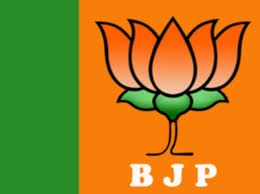
BHARATIYA JANATA PARTY
BHARATIYA JANATA PARTY
BHARATIYA JANATA PARTY (BJP) - India's ruling political party, the largest one in the country as of 2019. The party was formed in 1980, but its ideological origins can be traced back to 1951. The BJP's predecessor is the Bharatiya Jana Sangh party (BJS). The party was formed in collaboration with the Hindu nationalist organization Rashtriya Swayamsevak Sangh (RSS) to oppose the political practice of the Congress party. The main goal of the BJS was to preserve Hindu identity and culture. In the 1952 general election, the BJS won 3 seats in the Lok Sabha (lower house of parliament). In 1975, BZS collaborated with a number of other parties and formed the Janata party. In the 1977 general election, the Janata party won the majority of the vote and formed a government with Morarji Desai as prime minister. However, in 1980, due to political divisions within the party, Morarji Desai was forced to resign. Shortly thereafter, the Janata party ceased to exist, and most of its members, who were formerly members of the BJS, formed the BJP. The BJP took a softer stance on Hindu nationalism, basing its ideological base on Gandhian socialism under the party president Atala Bihari Vajpayee. However, after the massive defeat of the party in the 1984 elections, the BJP made changes to its political doctrine. The 1980s were a time of serious Hindu-Muslim clashes in the country, and to strengthen its position, the party supported the Ram Janmabhoomi movement, initiated by Vishwa Hindu Parishad (VHP). In 1996, 1998 and 1999, the Lok Sabha elections were held three times, in which the BJP became the largest single party. For ten years, the party had been playing an active and constructive role as opposition. The BJP emerged victorious in 2014 as well - under its leader, Narendra Modi. It won 282 seats in the general election, resulting in the National Democratic Alliance winning 336 out of 543 in Lok Sabha. Narendra Modi is an Indian politician, 14th and incumbent Prime Minister of India since 2014. According to its ideological principles, the party is nationalist, and is guided by five basic principles: adherence to nationalism and national integration; commitment to democracy; commitment to Gandhian socialism (Gandhian approach to socio-economic issues leading to the creation of Samaras Samaj, free from exploitation); commitment to positive secularism (Sarva Dharma Sama Bhava); commitment to values-based policies. For 2019, the number of party members is equal to 180 million people. At the moment, the party has a representation of 303 seats, which is 55% of the total number of seats. The BJP has a youth wing of the party - Bharatiya Janata Yuva Morcha. Party’s official website: http://www.bjp.org

